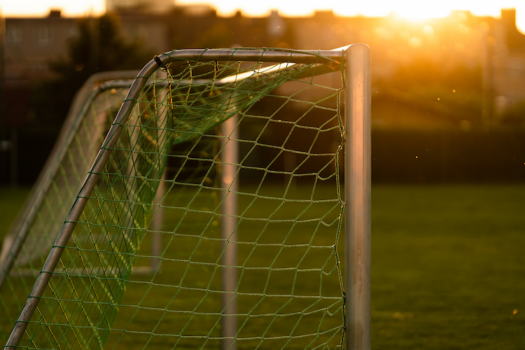
In Dennehy v. East Windsor Regional Board of Education (A-36-21/086350) (Decided October 26, 2022), the Supreme Court of New Jersey addressed the standard of care that should apply to a coach’s decision to allow a high school field hockey team to practice in an area adjacent to an ongoing soccer practice. The justices ultimately held that the coach’s alleged acts and omissions are governed by a simple negligence standard rather than the heightened standard of recklessness the court applies when one participant injures another during a recreational activity.
Facts of Dennehy v. East Windsor Regional Board of Education
On September 9, 2015, defendant Dezarae Fillmyer, who coached the Hightstown High School girls’ field hockey team, instructed players to warm up in an area adjacent to the school’s turf field, where the boys’ soccer team was practicing. Plaintiff Morgan Dennehy, a member of the field hockey team, was struck at the base of her skull by an errant soccer ball. She subsequently filed an injury lawsuit against Fillmyer, the school, and others.
The trial court granted summary judgment in favor of defendants, holding that plaintiff was required to show defendants’ acts or omissions rose at least to the degree of recklessness described in Crawn v. Campo, 136 N.J. 494, 507-08 (1994), and Schick v. Ferolito, 167 N.J. 7, 18-20 (2001). In Crawn, the New Jersey Court considered what a plaintiff-catcher was required to show to prove the liability of the defendant-runner, who collided with the plaintiff; the court concluded “that the duty of care applicable to participants in informal recreational sports is to avoid the infliction of injury caused by reckless or intentional conduct.” In Schick, the New Jersey Supreme Court held that “the heightened standard of care for causes of action for personal injuries occurring in recreational sports should not depend on which sport is involved and whether it is commonly perceived as a ‘contact’ or ‘noncontact’ sport.”
The Appellate Division reversed, holding that a simple negligence standard applied. In reaching its decision, the appeals court emphasized that Dennehy didn’t seek to hold a co-participant liable, which made Crawn inapplicable.
Court’s Decision in Dennehy v. East Windsor Regional Board of Education
The New Jersey Supreme Court affirmed, holding that Dennehy’s claims should be governed by a simple negligence standard.
In reaching its decision, the New Jersey Supreme Court highlighted that unlike cases in which the heightened standard has been applied, Fillmyer was not actively participating in the recreational activity at issue. The court also emphasized that Plaintiff was struck by a soccer ball that came from another field. “Even if Fillmyer was actively participating in the practice when plaintiff was injured, it is clear from the record that plaintiff was not injured by a batted field hockey ball, an errant swing of a field hockey stick, or any other activity associated with that sport,” the court wrote. “Plaintiff was struck by a soccer ball that came from another field. That undisputed fact further demonstrates that plaintiff’s claim is based only on Fillmyer’s supervisory role in selecting the timing and location of the team’s informal practice.”
In further support of its decision, the New Jersey Supreme Court cited that the policies that generated its decisions in Crawn and Schick, such as not wanting to place an unreasonable burden “on the free and vigorous participation in sports by our youth” and flooding courts with litigation, did not support the application of a recklessness standard in the current case. “Indeed, the essence of plaintiff’s theory of liability — that Fillmyer chose the wrong place and an unpropitious time to commence practice — is no different than the decisions that might be made by a biology teacher taking a class out to study marine life at the beach,” the court wrote. “In these and other similar settings, parents have the right to expect that teachers and coaches will exercise reasonable care when in charge of their children and that courts will not immunize a teacher’s negligence by imposing a higher standard of care.”
